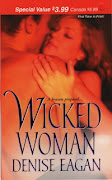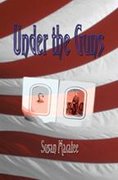
"Lina" and Nancy Astor were obviously different sorts of women - their personalities, appearances and lives were worlds apart. But, in three ways, they were alike - each was born in the Victorian era, each married an Astor, and each became more famous and influential than her husband.

"Lina" was the former Caroline Webster Schermerhorn (1830 - 1908). She was a member of New York's Dutch aristocracy, the descendants of the city's original settlers, and she married somewhat beneath herself when she became Mrs. William Backhouse Astor, Jr.
For the first few decades of her married life, Lina was typical of her class and time - she was preoccupied with raising her five children and running her household properly. In 1862, she and her husband built a fashionable brownstone mansion. It occupied the land where the Empire State building now stands, and was next door to her husband's older brother, John Jacob Astor III. The two families were next door neighbors for 28 years - but the brothers didn't get along.
After the Civil War, New York grew at an astronomical rate, and keeping the nouveau riche would-be socialites in their place became Lina's new cause. Her husband, a notorious womanizer, had little interest in Lina, their marriage, or the "social whirl," so Lina threw herself into her new mission. She took on the burden of being the unchallenged grande dame of New York's estalishment, and demanded that she be addressed as "The Mrs. Astor."
Working with her distant cousin, Ward McAllister, a so-called social arbiter, Lina came up with "The Four Hundred," the only people who counted, the only ones who belonged to New York's "Fashionable Society." Lina and Ward didn't arrive at the amount based on the size of Lina's rather small ballroom, but that's still accepted as the origin of the magical number.
In 1883, Lina's world began to crack around the edges. The barbarians (the Vanderbilts) were at the gates. For her housewarming party, Alva Vanderbilt planned a costume ball with "entertainments" given by young society figures. At the last minute she sent word that Lina's youngest daughter, Caroline, couldn't participate, because Mrs. Astor had never formally called on Mrs. Vanderbilt. Lina chose her daughter's feelings over her own social position and took her calling card to Alva Vanderbilt.
This was only the beginning of Lina's fall from power. In 1890, her brother-in-law, who had lived next door for so long, died. His son, William Waldorf Astor, inherited his father's holdings, and by all rights, should be considered the head of the Astor family. He wanted his aunt Lina to stop using the "title," The Mrs. Astor. Lina refused and the New York papers sensationalized the conflict.
After William Waldorf Astor was defeated in his bid for a seat in the United States Congress, he decided to leave New York and his disagreeable aunt behind and move to Great Britain. He later became a viscount, but he left a parting gift for Aunt Lina. He had his father's mansion torn down and replaced with the first Waldorf Hotel. Lina was devastated. She told people "There is a glorified tavern next door."
In retaliation, Lina and her son, John Jacob Astor IV, considered tearing down her mansion and replacing it with a livery stable. But the opulent new Waldorf Hotel revolutionized how New York socialized. Unwilling to live next door to New York's latest sensation, Lina and her son tore down her mansion and replaced it with another hotel, the Astor. The two hotels later merged and became the first Waldorf-Astoria Hotel.
By the time she moved into her new house facing Central Park, at the corner of 65th Street, Lina's husband had died. She lived with her son and his family until her death at age 78.
Nancy Langhorne Astor, Viscountess Astor, married the richest man in England and became the first female Member of Parliament
Down in Danville, Virgina, far from New York City, Nancy Witcher Langhorne was born in 1878. She was one of the five clever, beautiful and vivacious Langhorne sisters, Southern belles who became famous beauties. Lizzie, Phyllis, Nora, Irene and Nancy were the daughters of Chiswell Langhorne and his witty wife. A planter who had lost everything in the Civil War, "Chissie," made an even bigger fortune in railroads before Nancy was five, so the girls grew up with every advantage.
A big influence in Nancy's early life was Archdeacon Frederick Neve. Educated at Oxford, he came to Virginia to help poor whites in the interior mountains. Nancy worked with him as much as her father would allow and gained her first taste of a more charitable life.
The family also produced three sons, but they were eclipsed by their well-known sisters and little is known of them today. Early on, the lovely Irene was the sister in the limelight. She was the Gibson Girl who married Charles Dana Gibson. He was the famous illustrator and New York's most eligible bachelor until he met Irene, who was dubbed a Virginia society belle by Northerners.
Outspoken Nancy went to New York to finishing school as well, but she was labeled a "rustic fool" by New Yorkers. Irene tried to alleviate this by taking Nancy everywhere she went. Unfortunately, this led to Nancy's meeting and marrying Bob Shaw. Their marriage was a disaster. It lasted four years and produced one son, Robert Gould Shaw, III. The marriage ended after he agreed to the condition that his adultery would be stated as the cause of the divorce.
On a tour of England, Nancy fell in love with the place. She even met the Astor family but not her future husband. After her mother died, Nancy's father encouraged her to move there with her young son. He said it would be in keeping with her mother's wishes and also be good for her younger sister Phyllis.
Her move to England launched her reputation as an interesting and witty American. She was lively and saucy, yet religiously devout and prudish, This confused many Englishmen but pleased others. They liked the idea of an exciting American who at the same time mostly conformed to restraint and decency. She also began to show skills at winning over critics.
Waldorf Astor was born the same day Nancy was and his temperament complemented hers. He shared some of her moral attitudes, which she found comforting. They married and received a lavish country estate, Cliveden, as a wedding gift from the groom's father - he'd purchased it from the 1st Duke of Westminster.
There, the new Mrs. Astor began her life as a prominent hostess for the social elite.
Nancy was soon up to her neck in politics though and hosting political circles that bordered on fringe groups. She developed strong beliefs that would be considered politically incorrect today.
Somehow, she found time to have five more children.
She ran for Parliament because of her husband's situation. Waldorf Astor had a promising career in the House of Commons, but then he succeeded to his father's peerage as the 2nd Viscount Astor. This meant he became a member of the House of Lords and his seat in the House of Commons was automatically forfeited.
The new Viscountess Astor decided to contest her husband's vacant seat, and - amazingly - won.
******************************************************************
This brings us WAY past the age of Queen Victoria, so I'll stop here, and leave you with some of Nancy's witty remarks after she took her seat in Parliament.
*Lady Astor was giving a costume ball and Winston Churchill asked her what disguise she would recommend for him. She replied, "Why don't you come sober, Mr. Prime Minister?"
*Lady Astor told Churchill: "If you were my husband, I'd put arsenic in your coffee."
Churchill replied: "Madam, if I were your husband, I'd drink it."
Quotes:
*I married beneath me. All women do.
*I married beneath me. All women do.
*I refuse to admit that I am more than 52, even if that makes my sons illegitimate.
*My vigor, vitality and cheek repel me. I'm the kind of woman I would run from.
*The only thing I like about rich people is their money.
*The penalty for success is to be bored by the people who used to snub you.
*One reason why I don't drink is because I wish to know when I'm having a good time.
*********************************************************************
Sources:
*********************************************************************
Sources:
WHEN THE ASTORS OWNED NEW YORK: Bluebloods and Grand Hotels in A Gilded Age. Justin Kapling. Viking 2006
THE ROBBER BARONS. Matthew Josephson. Harcourt Brace & Company 1934, 1995 Edition.
LIFE AT THE DAKOTA: New York's Most Unusual Address. Stephen Birmingham. Random House, 1979.
FIVE SISTERS: THE LANGHORNES OF VIRGINIA. James Fox. Simon & Schuster, 2001.
NANCY ASTOR: A Biography. Anthony Masters, McGraw Hill, 1981.
NANCY: The Life of Lady Astor. Christopher Sykes. Academy Chicago 1984.
*********************************************************************









2 comments:
Mary Ann, that was hysterical! I love women like that, and the quotes you had at the end were great.
Christine
When my slip was showing, my dad used to say, "Who do you think you are, Mrs. Astor?" which Astor do you think he was talking about?
Post a Comment